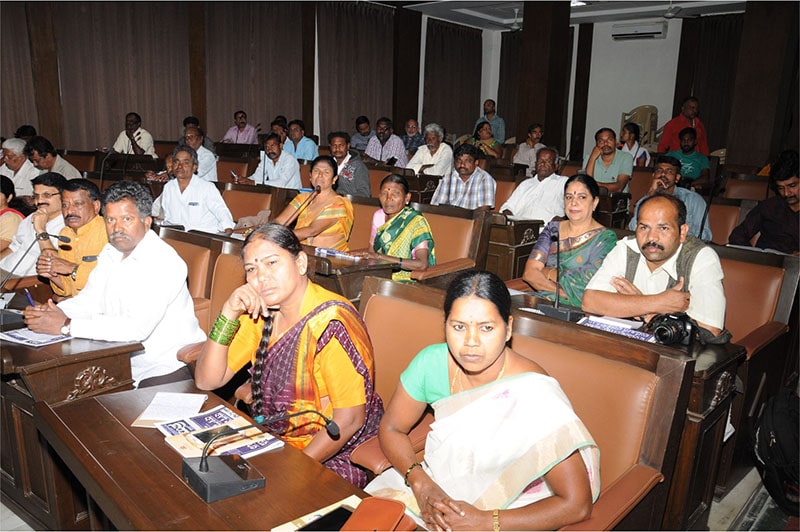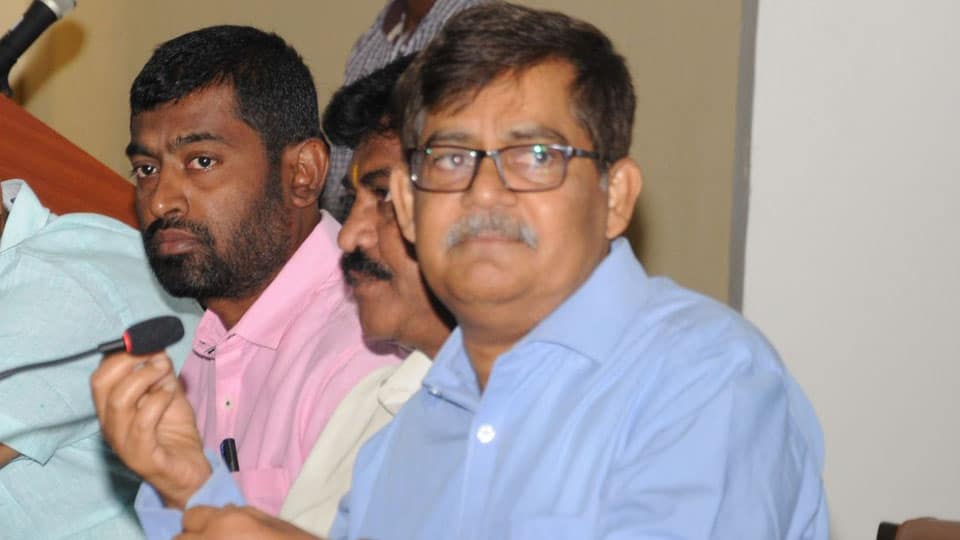Mysuru: “The conditions of the tribals have remained unchanged in spite of me submitting a report to the Government quite some time back regarding their issues and problem,” said thinker and University of Mysore Prof. Muzaffar H. Assadi.
He was delivering the opening address at the one-day seminar on ‘Role of Media in the Empowerment of Tribal Communities’ and ‘Welfare Programmes and Role of New Media,’ organised by the Karnataka Madhyama Academy, District Administration, Information and Publicity Department, Mysuru and Mysuru District Journalists Association at the Abdul Nazir Saab Auditorium in the Zilla Panchayat Office, here this morning.
Though there is bureaucracy and administration, the tribals feel helpless and hence they need to be encouraged to come out of their problems. Sadly, the benefits meant for the Scheduled Tribes are not reaching them. Hence, there must be a separate reservation policy for them among the STs, he said.
The big corporate houses control the national media and it is a sorry state of affairs to see that all they are interested is only in TRPs and market related issues completely side-lining the ones on Adivasis. As a result they have neither political nor economic strength to fight their causes. But media should raise to the occasion and become the voice of the voiceless, said Prof. Assadi.
Deputy Commissioner D. Randeep who inaugurated the seminar said that when he came to Mysuru, he saw that the media was covering only events like Dasara and ignoring such important issues like the problems of the tribals who are living just 30 km away from the city.
He said that he became aware of the tough conditions that tribals live in when he started interacting with them when some of them came to Mysuru as Mahouts and Kavadis during Gajapayana to participate in Dasara celebrations, accompanied by their families.
Giving the example of the tribal Gejja who had climbed a tree in Periyapatna and perched himself, Randeep said that the tribal was not aware of the Forest Rights that he was entitled to. Once, he was issued the duplicate card of the Forest Rights, which he had lost, Gejja was willing to be rehabilitated. Hence, it is the duty of the government and the media to become the voice of the voiceless, he added.
There were nearly 150 people including tribals from the Hadis and students participating in the seminar.

Madhyama Academy Chairman M. Siddaraju, Mysuru District Journalists Association President C.K. Mahendra, Karnataka State Tribal Research Institute Director Prof.T.B. Basavanagowda, Comprehensive Tribal Development Programme Planning Co-ordinator C. Shivakumar, Media Academy member K. Shivakumar, Information and Publicity Department Assistant Director R. Raju, Madhyama Academy Secretary S. Shankarappa, Additional DC T. Yogesh and others were present.








Recent Comments